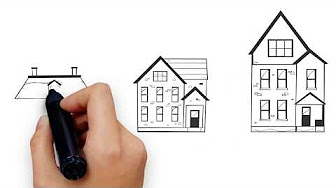

Ventura - Los Angeles - San Bernardino and Orange County Office (805) 551-1050
About our site
State Certified HERS Raters
HERS TEST - Duct leak testing
HERS TEST - Duct leak testing


Copyright © 2005-2022 https://HomeEnergyRatingService.com All Rights Reserved
Insured to $1,000,000

How To Pass Your HERS DUCT TEST
A duct test will let you know if there are any air leaks in your heating or air conditioning duct system. We pressurize your ducts with a special blower that measures the amount of air input and a probe placed into a register lets us know the amount of air leaking from your duct system.
These leaks can be coming from your ducts not being sealed properly or cavities in your home being used as ducts to transfer the air. The reason a duct test is required is because the Energy Commission discovered that most houses duct systems leak over 30% and want to reduce that number down to 6 %. January 2017 New construction will be required to pass the duct test under 5 % along with replacing over 75% of the ducts on existing homes.
Places to check for duct leaks are:
- The obvious, holes in ducting. If you turn your fan or A/C on and go into your attic you could feel around the ducts for leaks. Also check around the plenums.
- Flex Duct and the metal boot (air supply box) to the register should have zip ties and approved tape on both layers of the duct. If using flex duct.
- Registers should be removed and chalked between the metal boot (air supply box) and the drywall.
Air can leak back into the attic through this gap. If the gap is large enough it can draw insulation and dirt from your attic and blow it into your home. (See example below)
- The plenum is the metal box at each end of your furnace or air handler. This is where your ducts are attached. It is very important this is sealed also. Check where the ducts are attached to the start collar. Again there needs to be zip ties and tape on the flex duct. Also check around all 4 sides and corners of the plenum. In some cases a sheet metal screw should be used to secure any loose openings.
- Ceiling return grill should be checked. The ceiling return grill should be remove to see if it was sealed. If not you should seal the metal box to the drywall like you did with the registers. This is very important. The return will draw the dirt and insulation from your attic into the duct system and block the coil if you have refrigerated air, and blow the rest in your home. Sensitive people will find it harder to breath or a heavy chest.
- Platform return grill. If your furnace is located in a closet it is most likely leaking from below the platform. If you look under the platform through the return grill and see the 2x4s exposed on the wall sides there is a good chance those 2x4s go all the way to your attic. There should be fire blocks in the wall but it will still draw air from your attic into the furnace. This area should be sealed to stop air from infiltrating from the attic. Most A/C companies use "duct board" or "sheet metal" and mastic to seal this area under the platform. Drywall is not an allowed material.
Actual example of a homeowner I had with a new system installed. They had a completely new system installed including a completely new duct system cut in 2 years prior to me checking it. They would ride bicycles for exercise and noticed both would be winded easily and thought it might be related to their air conditioning so they called me. I found that when they cut the holes in the ceiling they made them too large. The register barely covered one hole and was allowing dust and dirt to enter their home. None of them were sealed as described above. I took down the ceiling return grill in the hallway and discovered the metal plenum was larger then the hole it was in and made the metal bow in with about a 1 1/2 inch gap from the wood 2X4, and a piece of insulation was covering the hole waiting to be sucked up into the system. The homeowner cleaned their whole house, sealed all the air supply boots (boxes) to the drywall along with the return air and they called me about two months later to thank me for finding their problem and they were back to riding their bicycles.
or Email us
HERS Rater Duct Test - Call Office (805) 551-1050 text OK
State Licensed HERS RATER with CalCERTS CC2005748 and CHEERS RCN13286

